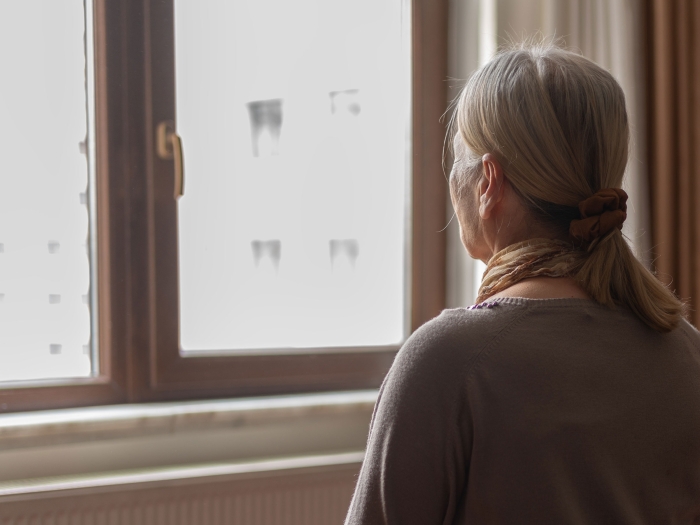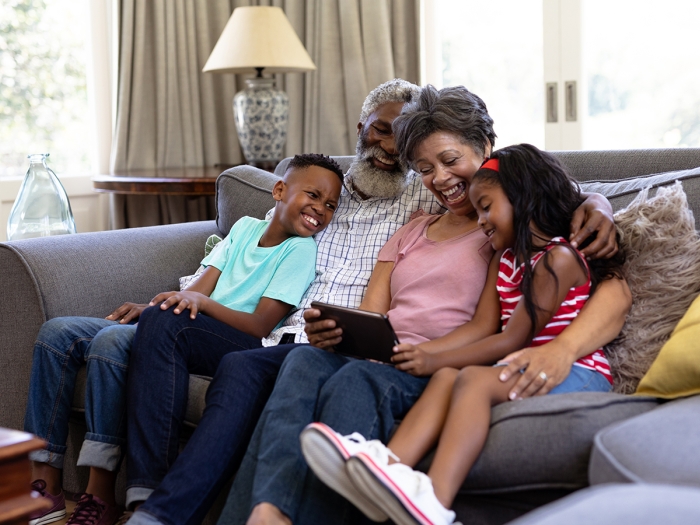8:00 AM
Author |

Far more older adults these days log on to secure websites or apps to connect with their health information or have a virtual health care appointment, compared with five years ago, a poll shows.
Overall, 78% of people aged 50 to 80 have used at least one patient portal, up from 51% in a poll taken five years ago, according to findings from the University of Michigan National Poll on Healthy Aging. Of those with portal access, 55% had used it in the past month, and 49% have accounts on more than one portal.
But the poll also reveals major disparities, with some groups of older adults less likely to use patient portals, or more likely to have concerns about them. Older adults with annual household incomes below $60,000, and those who are Black or Hispanic, have lower rates of portal use, and were less likely to say they’re comfortable using a portal, than respondents who are higher-income or non-Hispanic white.
There were also differences among older adults who don’t use portals, or haven’t used one in three or more years. Those who say they’re in fair or poor health physically or mentally were much more likely to say they’re not confident about their ability to log in and navigate a portal than those with better physical or mental health.
Even among older adults who use online portals, the poll shows many still prefer phone calls for some tasks like scheduling appointments or asking a medical question. Portal users in general said they prefer the portal to the phone when it comes to tasks such as getting test results and requesting refills of their prescriptions.
The poll is based at the U-M Institute for Healthcare Policy and Innovation and supported by AARP and Michigan Medicine, the University of Michigan’s academic medical center.
The jump in portal use between polls done in 2018 and 2023 likely happened in part due to the increase in use of telehealth visits, says Denise Anthony, Ph.D., the U-M School of Public Health researcher who worked on the poll.
The pandemic spurred many health systems, physician groups and hospitals to support video visits within their secure websites and apps.
“This change makes access to secure portals even more important for older adults who want to see their doctors and other health care providers virtually. It also makes the disparities we found in our poll even more troubling,” said Anthony, who chairs the Department of Health Management and Policy and studies use of telehealth and patient portals. "Improving the functionality and accessibility of portal systems, as well as providing more outreach and training to help patients understand and use portal systems, will be crucial to improving equity."
Many portals allow patients who have created their own accounts to also grant a loved one access to some or all of their information, so they can help manage their health care. The new poll shows that 49% of portal users have done so, up from 43% in 2018. Of all portal users, 40% have given access to a spouse or partner, with 48% of men doing so compared with 32% of women.
“A growing body of evidence shows that patients who use portals to access their information are more likely to take an active role in their care and stick to the treatment plan their physicians and other providers recommend, which we know is likely to lead to better outcomes,” said poll director Jeffrey Kullgren, M.D., M.P.H., M.S., an associate professor of internal medicine at Michigan Medicine and physician and researcher at the VA Ann Arbor Healthcare System.
“Health care organizations that offer portals, and providers working in those organizations, should make an effort to engage and support patients who have not yet activated a portal account, and to offer training to increase confidence and encourage the sharing of access with trusted loved ones,” he said. “This is especially important for patients who have complex health needs or multiple conditions.”
He notes that 27% of the poll respondents who have used a patient portal in the last year expressed an interest in more training. The percentage was higher among respondents who haven’t used a patient portal recently, and those who are Black, Hispanic or have incomes below $60,000.
Michigan Medicine launched its portal, MyUofMhealth.org, in 2012. Like many health systems, it has continued to add online functions, from rapid test result access and paperless billing, to self-scheduling some types of appointments and having asynchronous chats with providers for urgent matters. Today, 20% of all outpatient visits with University of Michigan Health providers take place via video connections hosted in the portal.
The poll report is based on findings from a nationally representative survey conducted by NORC at the University of Chicago for IHPI and administered online and via phone in January 2023 among 2,563 adults aged 50 to 80. The sample was subsequently weighted to reflect the U.S. population. For the previous patient portal poll, a different sample of older adults was asked about patient portal use, but both samples were weighted to reflect the population of U.S. adults aged 50 to 80.
Read past National Poll on Healthy Aging reports and about the poll methodology.
Poll cited: Use and Experiences with Patient Portals Among Older Adults

Explore a variety of health care news & stories by visiting the Health Lab home page for more articles.

Department of Communication at Michigan Medicine
Want top health & research news weekly? Sign up for Health Lab’s newsletters today!





